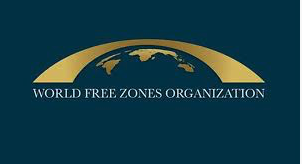Tempo de leitura: 3 minutos
2020 began on a note of cautious optimism, with international institutions predicting an uptick in growth. The reality was starkly different. The Covid-19 virus spread across the world and brought in its wake uncertainty, fear and disruption on a scale not seen for generations. In recent weeks, this global pandemic has affected our entire lives, and more specifically, our livelihoods.
Forced to react, governments have taken drastic measures to quell the spread of this disease. Lockdowns, air travel embargos, and emergency stimulus packages have impacted every economy on the Global Value Chain. Central banks are adapting their monetary policies and expanding liquidity, possibly at the cost of severe inflation in the near future. The World Trade Organization predicts that the slowdown will be on a scale reminiscent of the Great Depression of the 1930s. Consumption is dropping fast, a natural consequence of national lockdowns and confinement policies. Fiscal revenues are likely to fall, putting pressure on tax incentives of any sort. These are unprecedented times.
Free zones have not escaped this global disruption. However, their special status and distinct structures can help them weather this pandemic storm in unique ways. By putting clear strategies in place to manage their risk palette, from production to market and trade threats, free zones can emerge stronger and leaner from this crisis.
To offer guidance and support in these difficult times, the World Free Zones Organization, as the apex global representative body of free zones everywhere, has put together this Outlook 2020 report in collaboration with the Kiel Institute for the World Economy.
I am pleased to present in this report a snapshot analysis of the global economic environment, as well as the first results of our Business Excellence and Economic Contribution Survey launched in 2019. This is built on our database of free zone activity worldwide, tracking free zone performance and contributions to their host economies. The Outlook 2020 report also contains summaries of economic prospects and trends in free zones using its proprietary Free Zones World Economic Barometer (F-WEB), a quarterly, survey-based sentiment indicator. In fact, a special F-WEB survey was carried out at the end of March 2020, specifically focused on the channels through which the pandemic affects free zone economic performance.
Together, these insights form a bank of unique free zone knowledge and recommendations that can point the way forward in these troubled times.
Our strategy has always been to look ahead. This is why we have developed a range of certification programs and a palette of exclusive tools for free zones to thrive in any environment. From our Safe Zone certification to our Izdihar Index, together with our Free Zone of the Future initiative (Free Zone 4.0), these programs will form a new set of global standards for free zones to emulate and embrace, for the benefit of all their stakeholders around the world.
We will emerge stronger from this crisis. Free zones will build resilience. They will strengthen their frameworks. Together, we will help all free zones to rise to the occasion and grow more able to do business in challenging environments. This is the beginning of a new phase, with a whole new outlook on the world.
Let us come together to overcome this adversity and defeat this global threat.
Dr. Mohammed Al Zarooni
Chairman
World Free Zones Organization






Os comentários foram encerrados, mas trackbacks e pingbacks estão abertos.